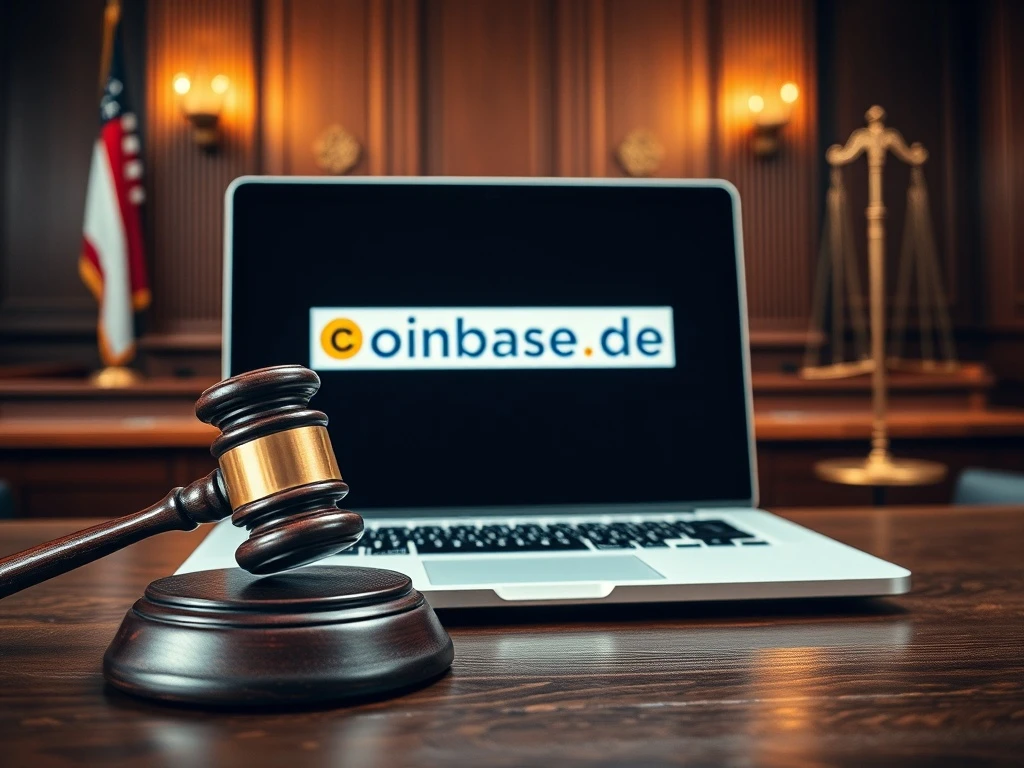Coinbase Fights Back: German Man Accused of Cybersquatting and Phishing Threats on Coinbase.de Domain

In a bold move to protect its brand and users, Coinbase has filed a lawsuit against a German individual for cybersquatting the domain coinbase.de. The case highlights the growing risks of phishing threats and domain disputes in the cryptocurrency space. Here’s what you need to know.
What is Cybersquatting and Why is Coinbase Taking Legal Action?
Cybersquatting involves registering domain names similar to established brands to exploit their reputation. Coinbase alleges that Tobias Honscha, the defendant, used coinbase.de to generate affiliate income and mislead users. The domain redirected visitors to unrelated services, violating Coinbase’s policies.
How Did the Domain Misuse Escalate to Phishing Threats?
According to the lawsuit, Honscha allegedly threatened Coinbase with phishing attacks and data breaches if the company refused to purchase the domain. This tactic is seen as an attempt to inflate the domain’s value artificially.
What Are the Risks of Cybersquatting in Cryptocurrency?
- User confusion and potential financial losses
- Increased phishing threats and security risks
- Damage to brand reputation and trust
What Does Coinbase Seek in the Lawsuit?
Coinbase is demanding control of the domain, damages, and the seizure of any ill-gotten gains. The case underscores the legal challenges global companies face in protecting their digital assets.
Conclusion: A Wake-Up Call for Domain Security
This lawsuit serves as a stark reminder of the importance of domain security in the cryptocurrency industry. Companies must remain vigilant against cybersquatting and phishing threats to safeguard their users and brand integrity.
Frequently Asked Questions (FAQs)
What is cybersquatting?
Cybersquatting is the practice of registering domain names similar to established brands to profit from their reputation.
How does cybersquatting affect cryptocurrency users?
It can lead to phishing threats, financial losses, and eroded trust in legitimate platforms.
What legal actions can companies take against cybersquatters?
Companies can file lawsuits to reclaim domains, seek damages, and prevent further misuse.
How can users protect themselves from phishing threats?
Always verify URLs, use two-factor authentication, and avoid clicking on suspicious links.







